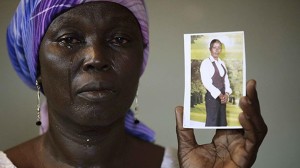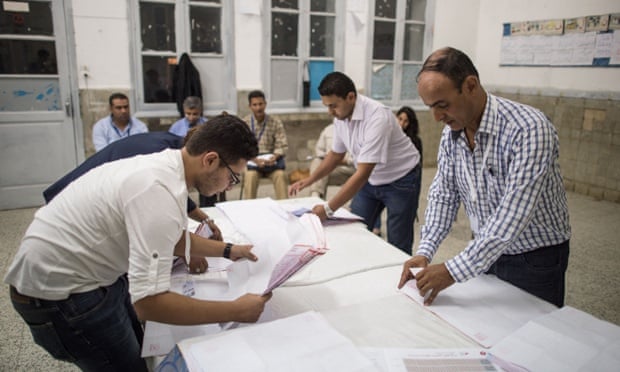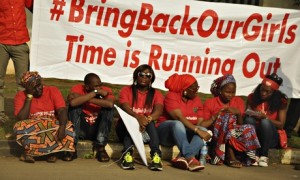By Kathryn Maureen Ryan
Impunity Watch, managing Editor
OUAGADOUGOU, Burkina Faso – The Burkina Faso army cleared thousands of protesters from the streets of Ouagadougou on Sunday and reportedly opened fire at the headquarters of State television, where protesters had overrun the television station, killing at least one person. The use of military force is reportedly an effort by the military to restore order after the resignation of President Blaise Compaoré two days ago in what some are calling a military coup d’état.

President Blaise Compaoré came to power shortly after the murder of President Thomas Sankara, one of Africa’s youngest leaders, in October 1987. Thomas Sankara was sometimes called Africa’s Che Guevara, Sankara was killed along with 12 other officials my members of the armed forces during a coup led by his top associate, Blaise Compaoré. Blaise Compaoré has held fast to power in Burkina Faso for 27 years, a period many say has been marked by fear and reparation, until protests took to the streets to demand an end to his rule last week.
Compaoré’s long rule ended abruptly last Friday after two days of mass protests held in response to his reported bid to change the constitution to extend his rule. The army then selected Lieutenant Colonel Isaac Zida as transitional leader, overriding an earlier claim by the army chief of staff. After seizing power on Saturday, Zida “I call on the international community, in particular countries that are friends and allies of Burkina Faso, notably in the African Union and ECOWAS (Economic Community of West African States), to demonstrate their understanding and support our people in this difficult time.”
During an emergency meeting with diplomats in the Burkina Faso capital Ouagadougou earlier on Monday Lieutenant Colonel Isaac Zida vowed that the military would yield power to a transition government. However, the interim leader failed to provide a timeframe for a handover of power.
The African Union has called on Burkina Faso’s military leadership to return power to civilians in the country. The African Union has issued an ultimatum, giving the military two weeks to return the state to civilian rule or face sanctions if they fail to comply.”We ask the armed forces to transfer power to the civil authorities, and the council has determined a period of two weeks for the transfer,” Simeon Oyono Esono, head of the African Union’s Peace and Security Council, said on Monday following a meeting in Ethiopia.”The African Union is convinced that the change has been against democracy. However, we know that popular pressure led to the resignation of the president. Those circumstances were taken by the armed forces to get into power, but it originated from the people,” Esono said.
The United Nations has also expressed concern over the apparent military takeover in Burkina Faso. Mohamed Ibn Chambas, the United Nations envoy for West Africa, issued a warning that if the military refuses to transfer power “the consequences are pretty clear.”
For more information please see:
Al Jazeera – African Union issues Burkina Faso ultimatum – 3 November 2014
The Guardian – Burkina Faso army uses gunfire to clear thousands from streets of capital – 2 November 2014
Al Jazeera – Burkina Faso: Uprising or military coup? – 1 November 2014
Al Jazeera America – Spirit of ‘Africa’s Che Guevara’ found in Burkina Faso uprising – 31 October 2014



